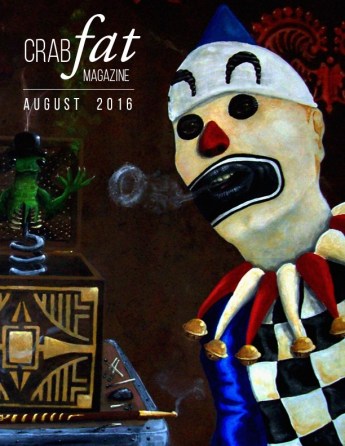Hello friends,
It’s been a while since I last posted an update. What surprises and successes this last year has afforded me. In March, I successfully defended my thesis before my committee at the University of Central Florida. In April, I read at least half of my poetry collection before my peers and literary fellows. This May, I walked across stage to symbolically earn my Master of Fine Arts degree in Creative Writing, though I’m still waiting for the hard copy diploma…
In bittersweet news, the company that my fiancé and I worked for closed its doors on Friday, March 11, 2016. I was booze-drowning my unemployment sorrows at a friend’s birthday party when I received a Facebook message from an old colleague. Cut to the chase, I met with him that following Monday and became his new Marketing Strategist. Although I’m not writing creatively for money, I get to proof content and coordinate development for websites we launch to market services throughout the country. And after a few weeks running food and serving sushi, Josh got a job as a Paid Search Specialist for a small agency with big clients. Pretty exciting stuff.
Creatively speaking, I’m on a roll! My poem, “Blind Tomorrow,” was accepted for publication in print by Blue Monday Review, a quarterly Kansas City publication that draws inspiration from the works of Kurt Vonnegut. Then the title poem of my thesis collection, “The Gasoline Tree,” was accepted for publication online sometime this coming June by Yellow Chair Review in Waco, Texas. Then four of my poems were published online by The Galway Review in Ireland: “Departure from Loneliness,” “Vacancy,” “Bring Me Back,” and “Sandwich Generation.” You can read all of them here! Last but not least, Crab Fat Magazine accepted my confessional prose poem, “I did a lot of things,” and should be publishing it online sometime in July or August.
As often as I refresh my inbox hoping to receive good submission news, the bad news I’ve been receiving hasn’t been all that bad. For those of you that don’t already know, RejectionWiki is a fantastic source for discovering and differentiating the types of rejections you receive from journals. Sure, I get a lot of form rejections. But personal rejections are what really keep me motivated:
- It’s not you, it’s us: Unfortunately, the piece is not for us. This does not necessarily reflect the quality of your work.
- Holloback girl! Unfortunately, after much discussion, we ultimately decided we would have to pass this time around but I hope you will consider us in the future.
- Tried & true: We wish you the best placing it elsewhere.
I treat the process of submitting my work like a full time job, because it is. I don’t limit myself to specific markets, such as: genre journals or magazines, themed contests, non-simultaneous submissions, print only, online only, prose only, rhyming only, etc. Why limit yourself right out of the gate?
My checklist for journals to submit to:
- Acceptance vs. rejection ratios: You have to have some kind of confidence to exclusively send your writing to markets with 1% or less acceptance ratios. Tough markets often take longer to get back to you too. I don’t necessarily want to wait 180 days for a NO, but that choice honestly depends on the poems. I know my best poems and I usually always want to save them for more reputable journals. Just remember that all journals have a reputation. Do your research and explore their published examples.
- Response time: As I mentioned above, journals have a variety of average response times. Some accept within two weeks or four months while others reject within two weeks and accept in four months. Set realistic expectations based on statistics, and I strongly recommend you get a Duotrope account so you can keep track of simultaneous submissions. If a poem of yours gets accepted somewhere, you need to alert the other journals that you sent that poem to right away.
- Print vs. online publication: Although your work is still as important when published online as it is in print, I typically reserve my best pieces for journals that do publish in print. There’s always a risk of a website becoming defunct. This happened to me when I published my first poem online in Dead Beats, a UK literary blog dedicated to the Beat Generation. When I went back a year later to read new work, the site was nowhere to be found.
- Pay vs. no-pay markets: We all want to get paid for our creative work. After all, I did spend five years in school earning my Bachelor’s and Master’s degrees. As we all know, education doesn’t necessarily equate to prosperity these days. You need to be smart. You can’t expect to be paid for each poem or short story you write, but you should always try.
Now that I’m done with school, I’m focusing on my career and expanding my horizons. Josh and I can start planning our wedding, but we’re still waiting to find out how long we’ll stay in Florida. Can’t take the heat anymore! Or the flat landscapes! But I will miss the sunsets.
Feel free to say hello, tell your own publication stories, or ask any questions in the comments section. I’ll respond as soon as I can.
With love,
Brianne (& Huxley)

